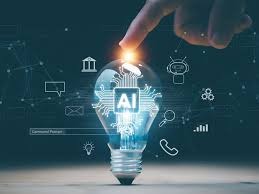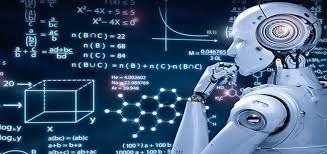AI and Computer Science: Why They’re Becoming Graduation Must-Haves
Walk into just about any school today, and you’ll sense it—something’s changing. Kids aren’t just learning how to diagram sentences or balance chemical equations anymore. They’re writing Python scripts, experimenting with machine learning models, and debating the ethics of AI. That’s not a tech club activity. It’s becoming a graduation requirement.
Yeah, really.
More and more school systems around the world are adding computer science—and increasingly, artificial intelligence—to the list of what students must know before they toss their caps in the air. Not as electives. As essentials.
Let’s talk about why.

The Job Market Is Evolving (Fast)
Remember when knowing how to use Excel was a killer resume skill? Cute. That was 2012.
Now, if you want to be taken seriously in most industries—tech, health care, media, finance, logistics, you name it—you better know the basics of how computers “think.” AI has found its way into everything from hospital management systems to Spotify playlists. If you don’t understand it, you’re not just behind. You’re at risk.
That’s why schools are scrambling to keep up. Employers aren’t just hiring coders. They’re hiring AI-literate thinkers who can work across disciplines.
From “Nice-to-Have” to “Must-Have”
Not long ago, computer science was lumped in with shop class or creative writing. It was great if your school offered it, but it wasn’t considered critical.
Now? It’s being treated like math or science. In fact, in states like Arkansas and South Carolina, students must take computer science to graduate high school. This isn’t a Silicon Valley thing—it’s becoming national policy. Other countries, like Finland and South Korea, are even further ahead.
But here’s the kicker: they’re not just teaching how to code. They’re teaching why it matters. What makes AI “intelligent”? How do algorithms influence what you see on social media? How can machines reflect human biases—and what can we do about that?
These aren’t just tech skills. They’re citizenship skills.
What It Looks Like in the Classroom
We’re not talking about turning every teenager into a data scientist. AI and computer science in schools look more like this:
- Understanding the logic behind decision trees and algorithms
- Recognizing patterns in data sets
- Exploring real-world AI applications, like recommendation engines or facial recognition
- Learning about bias, privacy, and how AI can either reinforce or challenge discrimination
You might see students designing a chatbot for customer service or building a simple app that calculates carbon footprints. But you’ll also hear them discuss ethical dilemmas. Like whether it’s okay for a hiring algorithm to sort résumés by zip code.
This dual focus—technical and ethical—is key. We don’t just need more coders. We need better thinkers.
Challenges That Come With the Territory
Now, let’s not pretend this shift is easy.
One big issue? Access. Not every school has a tech-savvy teacher who can confidently explain machine learning. Not every district can afford updated equipment or reliable internet. And let’s be real—some teachers are being asked to teach material they barely understand themselves.
If AI and computer science are truly going to be graduation requirements, then school systems need serious investment. Infrastructure, professional development, curriculum overhauls—the works.
Otherwise, we risk creating a digital divide where students in wealthier districts graduate fluent in AI while others fall even further behind.
New Ways to Measure Learning
Standardized tests won’t cut it anymore. You can’t measure AI literacy with a Scantron sheet.
So educators are getting creative. Project-based learning is big. Students might get graded for building an app, analyzing real-world data sets, or debating ethical scenarios involving AI. Portfolios and performance tasks are replacing bubble sheets.
It’s more work for teachers and students—but it also feels a lot more real.
What’s at Stake?
This isn’t just about career prep. It’s about shaping the future. The people designing, regulating, and using AI in the coming decades will make decisions that affect everything—economics, law, even democracy. If students don’t understand these systems, they’ll have no say in how they evolve.
Think about that.
We’re not just teaching them to code. We’re teaching them to participate.
Where We Go From Here
Making AI and computer science mandatory for graduation? It’s bold. It’s necessary. But it has to be done thoughtfully.
That means:
- Training and supporting teachers (not just handing them a syllabus)
- Updating infrastructure in under-resourced schools
- Listening to students about how they learn best
- Focusing on real-world applications, not abstract theory
Because if we get this right, we’re not just helping students land better jobs. We’re giving them the tools to question the world, to build it better, and to protect themselves from the systems that don’t have their best interests at heart.
In the end, this isn’t just a curriculum update. It’s a mindset shift. A cultural pivot.
Computer science and AI are the new grammar and arithmetic. We’ve entered the age where understanding how machines think is just as important as understanding how people do.
Ready or not, it’s here.




